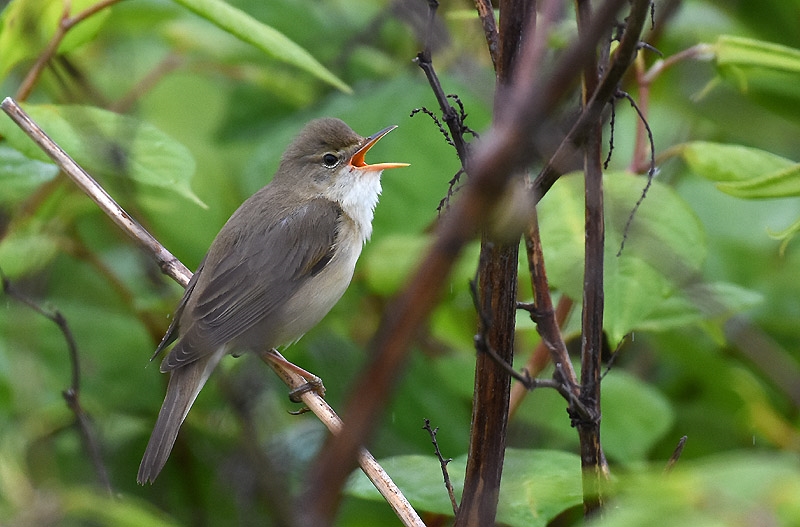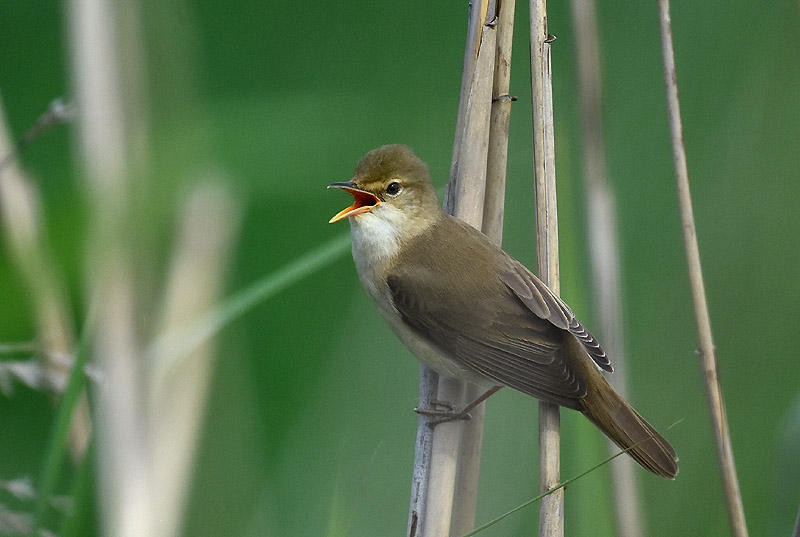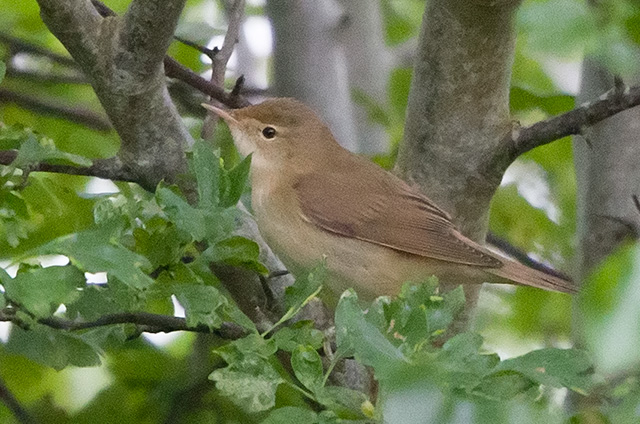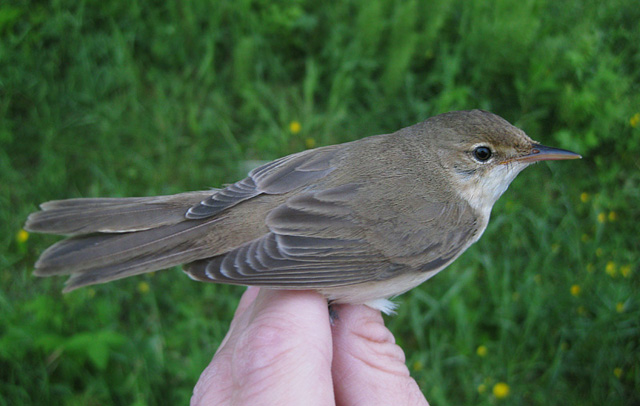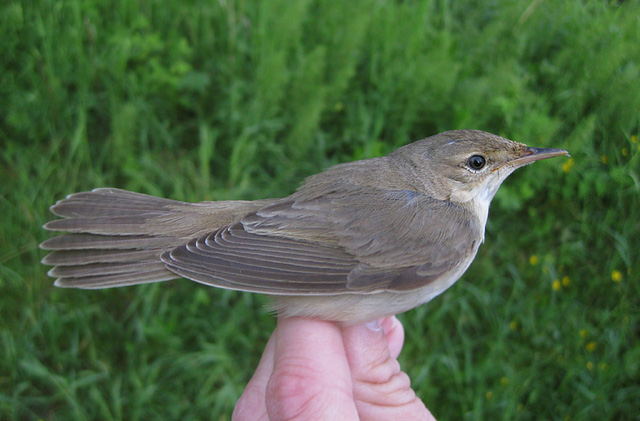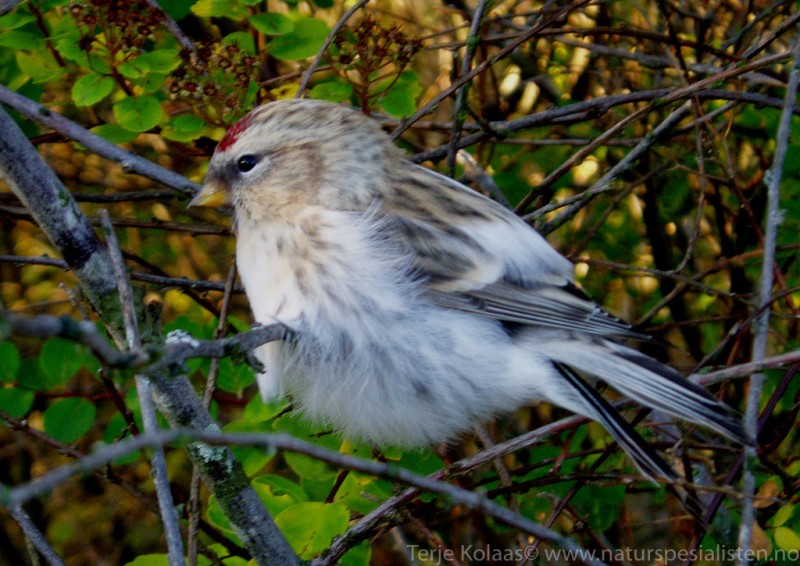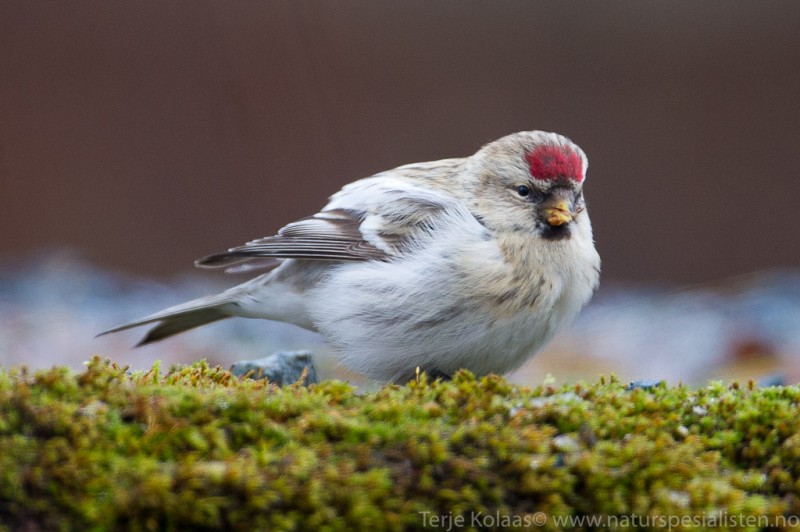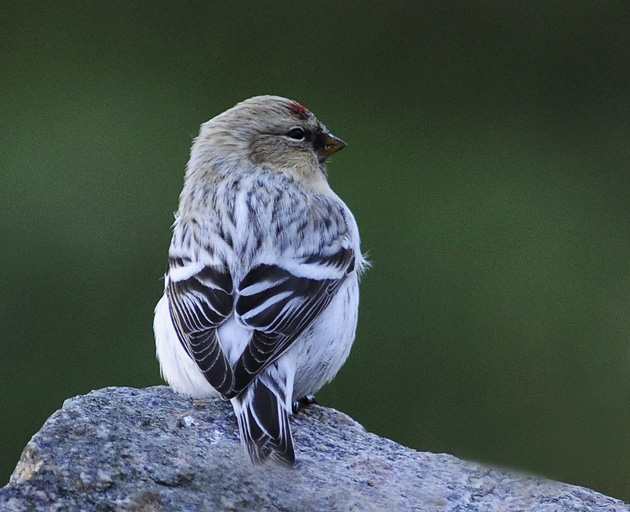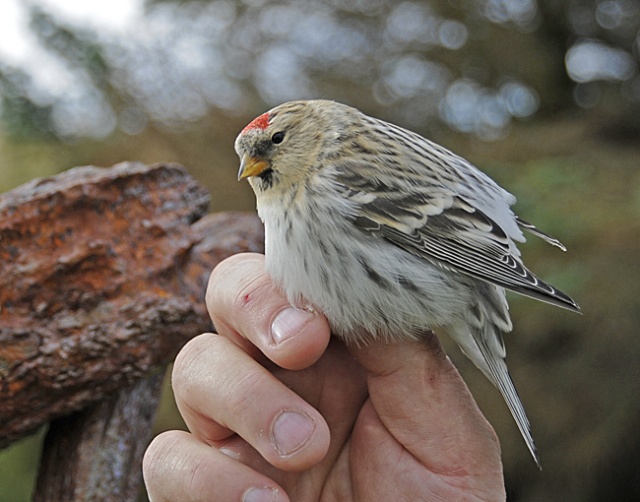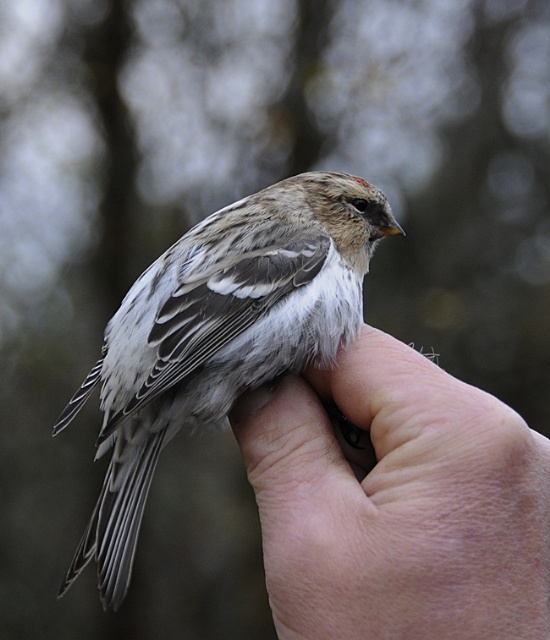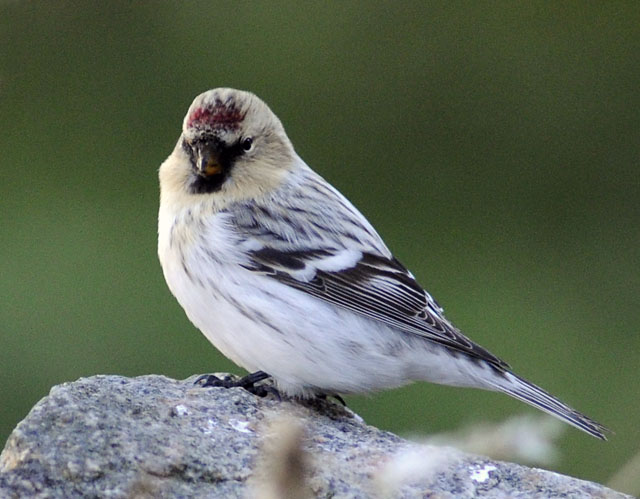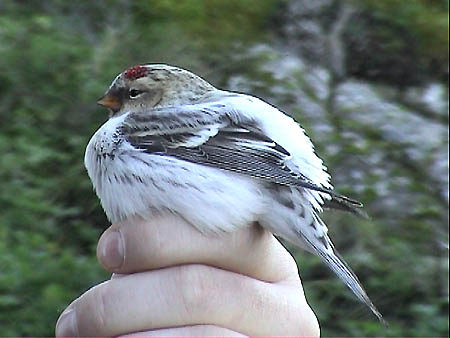Marsh Warbler (Acrocephalus palustris)
Arctic Redpoll (Acanthis hornemanni)
Plain and characterless plumage, but conspicuous song. Larger than Sedge Warbler, with larger wings, broader tail and tail-base. Very similar to Reed Warbler, and very hard to distinguish by plumage alone. Rump of Marsh warbler shows less contrast to back, and flanks have a yellowish tinge. Bill slightly shorter and less pointed. Differs from Blyth's Reed Warbler by longer primary projection, yellowish lower mandible and paler legs. Juveniles especially hard to identify because of even fainter plumage field marks. Less common in reed beds than Reed Warblers, and more attached to bushes with lush undergrowth.
Sound:Song extremely varied and full of mimicry of both European and African species. Up to 75 species imitated by the same bird. Phrases often repeated 2-4 times, and different phrases may overlap. Nevertheless, clearly defined phrases with marked pauses. Sometimes more flowing streams of notes, but less so than Icterine Warbler. Most similar to Icterine and Blyth's Reed Warbler. Softer timbre than Icterine, and not so loud. More defined pauses and staccato tempo, and lacks Icterine Warbler's nasal high-pitched calls. Differs from Blyth's Reed Warbler in fewer repetitions of each phrase, and lack of said species' whistling, arpeggio-like calls. Typical sequence is a hoarse, drawn "ti-chaaa". Alarm call a short "chepp" with clipped ending.
Song:
Distribution:
Xeno-canto: map
Ecology:Birdlife ecology
Links:
Observation.org Latest observations
Image search Flickr NB! May give other species
CCSounds:Recorded by Edmunds Racinskis
Differs from Common Redpoll by white, almost unstreaked rump (young birds may have some streaks). Under tail coverts white, with only very narrow black center, or no black at all. Upperparts greyer, underparts whiter with less prominent streaking. Wing bars brighter. Bill shorter and less deep, and face "flatter". Juveniles difficult to distinguish from Common Redpoll, even when held in hand. Species status debated.
Sound:Very similar to Common Redpoll, but possibly with a softer tone and slightly longer pauses between each syllable. See Common Redpoll.
Distribution:Xeno-canto map
Ecology:Birdlife ecology
Links:
Observation.org Latest observations
Image search Flickr NB! May give other species
CC
 English
English Albanian
Albanian
 Armenian
Armenian
 Bulgarian
Bulgarian
 Catalan
Catalan
 Croatian
Croatian
 Czech
Czech
 Danish
Danish
 Dutch
Dutch
 Finnish
Finnish
 French
French
 Georgian
Georgian
 German
German
 Greek
Greek
 Hungarian
Hungarian
 Italian
Italian
 Latvian
Latvian
 Lithuanian
Lithuanian
 Macedonian
Macedonian
 Norwegian
Norwegian
 Polish
Polish
 Portuguese
Portuguese
 Romanian
Romanian
 Russian
Russian
 Sami : Lule sami
Sami : Lule sami
 Sami : North sami
Sami : North sami
 Sami : South sami
Sami : South sami
 Scientific names
Scientific names
 Serbian
Serbian
 Spanish
Spanish
 Swedish
Swedish
 Ukrainian
Ukrainian


